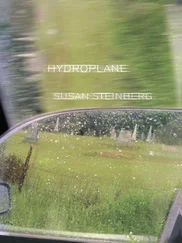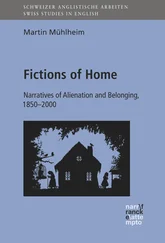Nothing to it.
Just you watch.
The text — I mean the one that came before me — situates us in a situation as follows: two women, the poet and a widow, the bereaved missus of the lover of the poet.
For how long had the lovers been lovers?
Long enough.
And the deceased deceased?
A less long time than that.
Whatever the precise relativities, we are talking about an adulterous liaison along the usual lines.
So far, so good — the loved and the loveless.
Of course, the poet is herself married. But since her spouse never enters the poem by more than intimation, we are led, I think, to conclude that his relation to all this is of no concern and of less importance. I mean, insofar as people going and fucking people they weren't supposed to, the poet's spouse doesn't figure into any of this at all. He is not contingent, that is — at least not with respect to the prospect of what we are guessing must be coming.
Not so the dead man's wife. What I am suggesting is — what is suggested by the poet in the poem (oh yes, the poet, as I said, is in the poem, in the poem and speaking) — is that an air of discovery thickens over things very greatly: the unsuspecting widow, her husband's sneaky copulations. But, naturally, this is where we are headed, where the original text is taking us — toward exposure, toward widow-know-all.
As for the one party the poem pays no mind to (now that the poet's version has been published — in not nearly so distinguished a setting as mine was) doesn't he, must not he, even as I write this, know all too?
But perhaps the spouses of poets don't read poetry.
Is this not why the poet was in this fix in the first place?
What does it matter one way or the other, the poet's hubby, what he knows or what he doesn't? It's plain we are not required to direct toward him more than passing notice. The poet urges us to do as much. Or is it as little?
One dismissive reference.
WHAT HAPPENS IS THIS.
In the poem, remember?
We see the poet and the widow at the widow's. Newly back from the cemetery? We're not informed. Just this — a blustery day, late autumn, late morning, the women in pullovers and cardigans, grays, tans, tweeds, second sweaters arranged autumnishly over shoulders, ankles brought back under buttocks.
A living room, a fire.
Are the principals seated on the floor?
I think so. I like to think so.
What we're told is the poet's here to lend a hand — help sort the dead man's papers, be good company, a goodly solace, a presence in an empty house. So we see the women being women together, being the bereaved together, fingering what the dead man wrote.
(Was he a poet, too? More than likely. Nowadays, there are many, many poets.)
We see them grieving lightly, smoothing skirts, reminiscing, sipping tea, making tidy. Well, we hear this, see that — I don't recollect if the poet really keeps her senses keyed to this or that event. So we see, or hear, their speeches when they reach into a carton to read aloud a bit of this, a bit of that.
You know — fellowship, fellowing. A little weeping. Women's shoulders. Women's sweaters.
Nice.
When — didn't I say you'd guess it? — there's the wife with her hand at the bottom of a carton, and then her hand up and out, a neat packet in it, envelopes, a certain shape and paper, a certain fragrance, the dead man's record of the poet's indiscretion — letters that record the couplings, letters that give account.
My God!
Etc., etc., etc.
BUT LET'S NOT BE non-poets here. It's not as bad as all that. After all, the man's dead and buried. Quite beyond a scolding. The widow's seen plenty. The poet is a poet. Life is. . life.
Oh, well.
So there we are (at the poet's placing), watching women being wiser together — cry a little, laugh a little, and then at last, seeing them, as the worldly will, embracing.
I'm not so sure who speaks first, nor what the poet said was said — the poet's poem being somewhere here among my trophies but I being too caught up in this to get up to go check. Let's just say the widow says, "All these years, all these years, and who was he? He was who you talked to in these letters."
And the poet?
Who remembers?
But I expect she says whatever's said to someone being spacious for your benefit. Perhaps this: "No, no, it was you who had the better of it — the husband, the man."
Etc., etc.
The deceased, in pursuit of this assertion, is then celebrated, in two deft lines, for his performance in the two domains indicated.
Is there guile in this? Does the poet mean for us to take a tiny signal? Consider — why the symmetry? Is this the actual or the artful? And consider even further: What are we to do about the difference?
Anyway, who's the kidder here — the poet in the poem or the poet not in it?
Balance, don't I detest it! Some ghastly disproportion, now there's the thing!
SO THERE THEY ARE, poet and widow, usurper and usurped. Unclothed, as it were, disrobed — each jumpy to reach out and grab for cover what's nearest.
So they hurry to hide themselves in other people's bodies.
Another embrace. Sort of sisterly. Sisterly hugging. But it goes from this to carnal. At which point, the poem has furnished us with the great fraction of its text, the day (get this!) having, in its pliant time, accomplished (the poet tells us) a like progress.
So it's dusk when the two women make their way to bed, to do what the poet then gives us to imagine. But before we know it, the poet reappears, having projected (she explains) her astral body back to the room where she'd left us. We see, via her sight, the letters lying strewn among the papers. We see teacups, saucers, purses, shoes, sweaters. We see these things as things at first, as enumerations on the widow's Chinese rug.
The rest of the poem?
Now here you have it! For the poem now labors to extract from the figure of these particulars a facsimile of the human spectacle, something serviceable in the way of a teaching, the event freed of the uneventful, the meaningless made to make way for a meaning.
THIS WAS THE POEM the poet published and that I — genius that I am for spotting where a work has turned away from the unendurable vision in it — have since rewritten and passed along for a small disbursement and the fun.
Now let me tell you what I did.
In my poem, nothing's different. Word for word, it's all the same — up until the astral body comes back for a summary. Just like the fake poet, I take a look around. I see the same junk the poet saw. But in my poem, where I see the crap is on a decent grade of wall-to-wall broadloom bought at the mall and installed when the rhyme — sorry, the price! — acquired when the price was right.
And, notice, was I ever even once a person in that house?
Skip it.
It is all the same to me — the goddamn fancy phony rug, what's on it and its fucking whereabouts.
I WANT TO TELL YOU about the undoing of a man. He's not a fellow I ever knew very well. It is only the key erosions that built to his collapse that I know well enough, the handful of episodes that toppled this fellow from the little height he thought he had. I, in fact, was present at what you might call the critical moment. I mean the turning when our man was tipped, as it were, all the way over. As for the math after, how he has since fared in the grip of his ruin, that is a matter I know, and care, next to nothing about.
He had a marriage, children, and a second woman whom he would see from time to time. As far as I could tell, his relations in all these respects were perfectly correct, the usual make-do life of a fellow residing in urban circumstance, a fellow in his forties, a moderately accomplished chap, which statement is meant to convey the impression of a fellow exceptionally able — if you will allow the assertion that passing accomplishment in our parlous times often calls for surpassing ability. His was that sort of urban circumstance — the work he did and where he did it. But this is just a particle of what I mean.
Читать дальше











